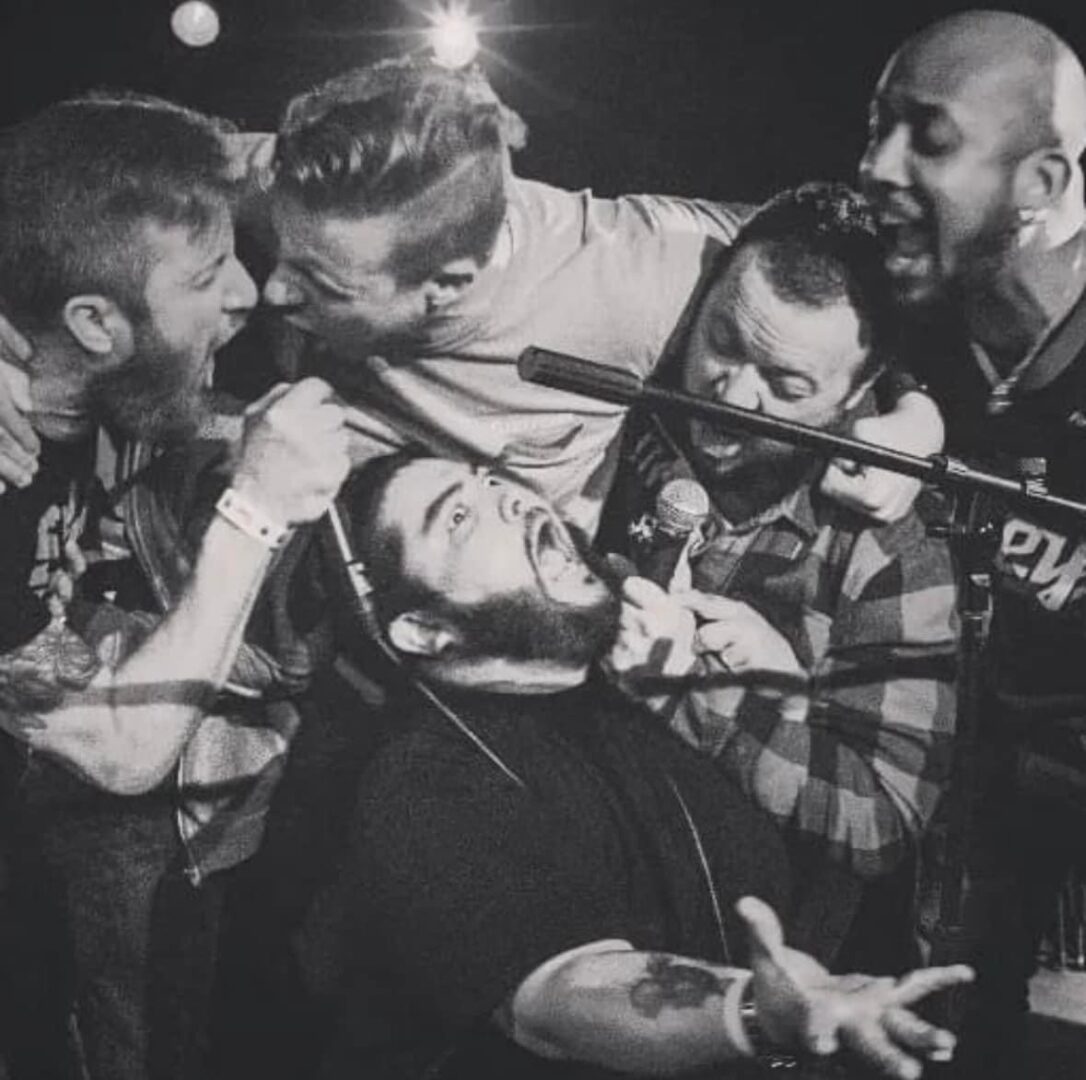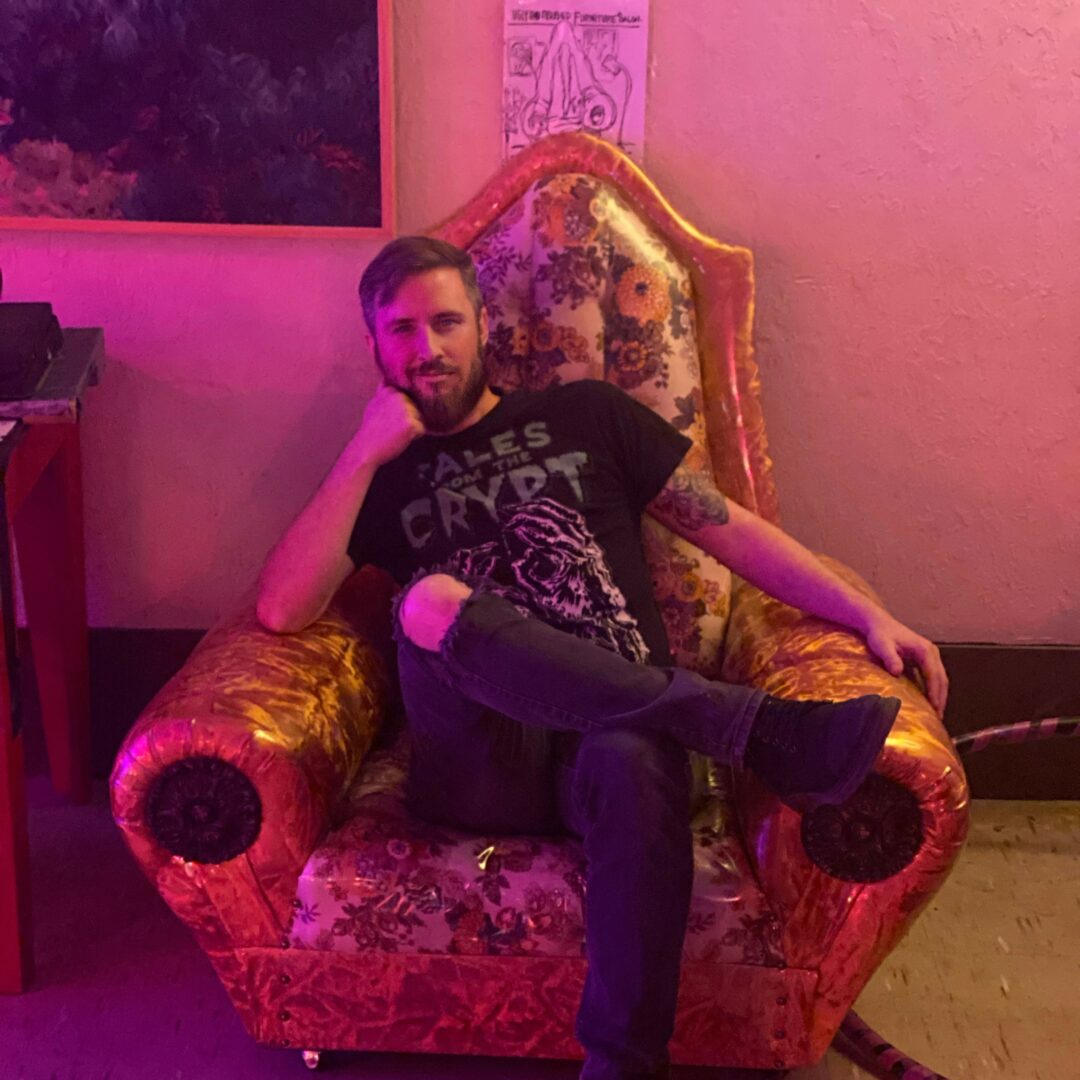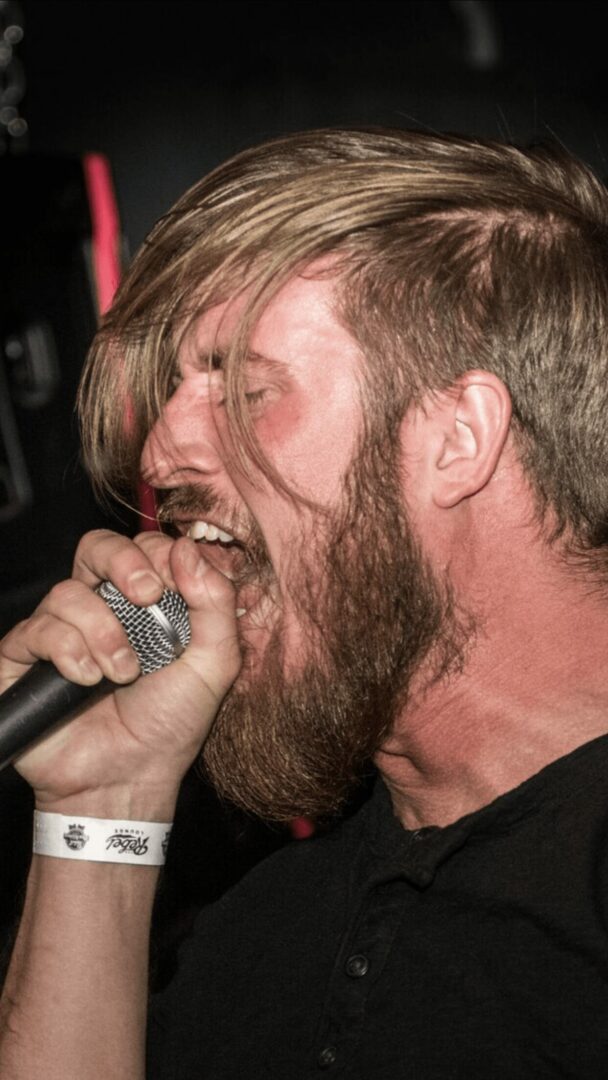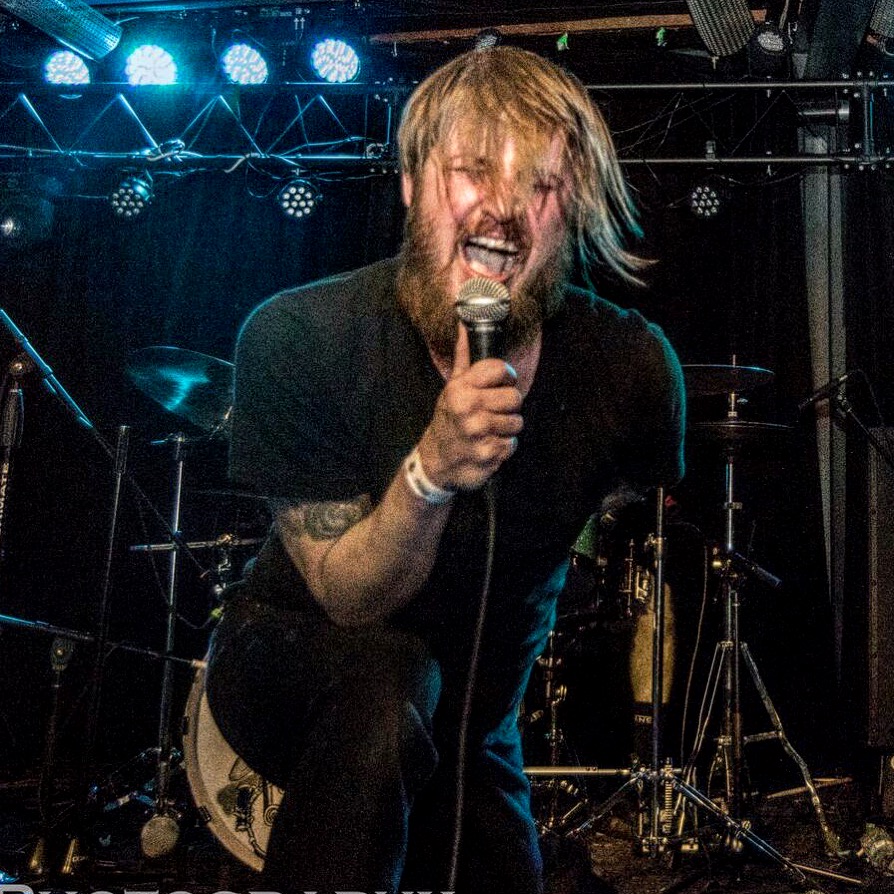We’re excited to introduce you to the always interesting and insightful Brandon Kellum. We hope you’ll enjoy our conversation with Brandon below.
Brandon , we’re thrilled to have you sharing your thoughts and lessons with our community. So, for folks who are at a stage in their life or career where they are trying to be more resilient, can you share where you get your resilience from?
Brandon Kellum: The Relentless Frontman
In the parched heart of Phoenix, Arizona, where the desert sprawls like an endless challenge, Brandon Kellum has carved his name into the arid landscape of modern hardcore music. It is a name synonymous with raw energy, resilience, and the refusal to bend beneath the weight of life’s heaviest burdens. As the frontman of American Standards and The Hostage Situation, Kellum’s journey from the blistering heat of Phoenix to stages across the world is one marked not only by musical prowess but by a profound endurance shaped by personal trials that tested his spirit.
Born in 1985, Kellum grew up in a city where survival often meant more than just weathering the sun. Phoenix, with its sprawling freeways and patchwork of working-class neighborhoods, shaped a young Brandon into someone deeply familiar with both grit and perseverance. Music, for him, became not just an outlet, but a lifeline. What began as an infatuation with the chaotic sounds of punk and metal soon evolved into a full-fledged obsession—one that demanded more than just a passive listening ear. It required his whole being.
In 2011, with a burning desire to bring something new to the underground scene, Kellum formed American Standards, a hardcore band that thrived on unpredictability and the blistering pace of life’s chaotic turns. But while the music captured the rage and rebellion of youth, it was life off the stage that would shape Kellum into the resilient figure he is today. Just as the band began to gain momentum, tragedy struck. Brandon’s father passed away after a battle with cancer, a loss that shook him to his core. In the aftermath, music became more than just a creative outlet—it became therapy.
The personal battles didn’t end there. While grappling with grief, Kellum faced the uncertainty of band members coming and going, the financial instability that so often accompanies life as an independent artist, and the constant grind of touring. His journey with American Standards was not one of instant success. It was built through sleepless nights on the road, DIY shows in crowded basements, and the kind of raw, emotional vulnerability that most would shy away from. For Kellum, the stage was not a place of refuge but a battlefield, where he fought not just for his art, but for his very sense of self.
Despite the hardships, or perhaps because of them, Brandon’s voice—both metaphorically and literally—became stronger. His lyrics, often reflecting themes of mental health, societal pressure, and personal struggle, connected with audiences who, like him, were seeking catharsis. Through each performance, he found a way to channel his pain into something that transcended the boundaries of the stage, forming an unspoken bond with the fans who saw in him a reflection of their own resilience.
His tenure with The Hostage Situation, another Phoenix-based project, further solidified his reputation as a relentless frontman. In a scene often dominated by fleeting trends, Kellum’s work with both bands showcased his unwavering commitment to authenticity. Whether screaming into a mic or connecting with fans off-stage, Brandon’s ethos has always been one of honesty—a refusal to compromise his message or the raw intensity that defines his music.
But Brandon’s story is not just one of personal hardship. It is one of growth, community, and the power of music to bring light to even the darkest corners of life. Through his art, Kellum has forged a path not just for himself, but for countless others who find solace in the discordant, the loud, and the unrelenting. For Brandon Kellum, music is not merely a profession—it is an embodiment of survival, a testament to the resilience of the human spirit.
In a world that so often seeks to silence the vulnerable, Kellum has chosen to scream back, louder and fiercer than ever before. His voice, like the Phoenix desert itself, remains unyielding—bold, relentless, and burning with life.

Thanks, so before we move on maybe you can share a bit more about yourself?
In the ever-evolving landscape of hardcore music, few endeavors have matched the emotional gravity and significance of the annual reunion shows organized by Brandon Kellum for The Hostage Situation. These shows, more than just a nostalgic revival of Phoenix’s iconic hardcore band, serve as a conduit for something far greater—a deep commitment to community, education, and the power of music to inspire change. At the center of this lies Rosie’s House, a nonprofit music academy dedicated to providing free music lessons to underprivileged youth in Phoenix. For Kellum, the decision to align The Hostage Situation’s reunion shows with this cause was not just an act of charity—it was a reflection of his belief in music as a transformative force.
The reunion shows themselves are events that pulse with both intensity and purpose. What began as a one-off reunion to honor the band’s legacy has since blossomed into an annual tradition, drawing fans from across Arizona and beyond, eager to recapture the raw energy of The Hostage Situation’s heyday. But these shows are more than a trip down memory lane. They are a living testament to the enduring impact of the hardcore scene—a reminder that even after nearly two decades, the passion and drive that fueled the band remain undiminished.
Kellum, never content to simply bask in the nostalgia, took these reunions as an opportunity to give back. He channeled the fervor of the audience into something more meaningful—supporting Rosie’s House. The nonprofit, which aims to bridge the gap between socio-economic barriers and the arts, provides instruments, lessons, and a path to musical education for children who might not otherwise have access. For Kellum, this partnership was a natural extension of his own story. He had grown up understanding the importance of music as a vehicle for expression and survival, and in Rosie’s House, he saw a way to offer that same gift to future generations.
The annual reunion shows now stand as a highlight in Phoenix’s music calendar, blending the chaotic, unrelenting sound of The Hostage Situation with a cause that echoes far beyond the walls of the venue. Fans, many of whom grew up with the band’s music, now bring their own children, bridging generations through the shared love of hardcore. And with every dollar raised, Rosie’s House continues to empower the next wave of musicians, ensuring that Kellum’s belief in the power of music remains a living, breathing force.
In 2023, nearly two decades after their initial dissolution, The Hostage Situation released their first new song in 18 years—a thunderous track titled “The Last Leg.” For fans and the band alike, this wasn’t just a release; it was a resurrection. The song, which rumbles with all the ferocity and aggression of their earlier work, carries with it the weight of time, experience, and growth. Lyrically, it mirrors the trials Kellum himself has endured—speaking to the fragility of life, the perseverance required to keep going, and the determination to push forward even when the odds seem insurmountable.
“The Last Leg” is more than just a return to form; it is a manifesto of resilience. As the lead single, it captures the essence of what has always made The Hostage Situation and Kellum’s work so compelling—the ability to take pain, frustration, and uncertainty, and transform them into something that empowers both the creator and the listener. For the band, the song marks the beginning of a new chapter, one forged by their shared history but looking toward an uncompromising future.
Through these reunion shows and the release of new music, Brandon Kellum’s role in The Hostage Situation continues to evolve. No longer just the voice screaming into the void, he has become a leader, an advocate, and a mentor. His efforts to support Rosie’s House highlight his dedication to ensuring that music remains a lifeline for those who need it most, just as it was for him.
In “The Last Leg,” Kellum’s voice may carry the scars of time, but it also carries the strength of survival—an anthem for the fighters, the survivors, and the ones still standing, no matter the cost. The Hostage Situation’s reunion shows and new music are a reminder that, even after years of silence, some voices are too powerful to be quieted. For Brandon Kellum, the journey continues—and it’s far from over.

There is so much advice out there about all the different skills and qualities folks need to develop in order to succeed in today’s highly competitive environment and often it can feel overwhelming. So, if we had to break it down to just the three that matter most, which three skills or qualities would you focus on?
Looking back on his journey, Brandon Kellum’s path through the hardcore music scene was shaped by three core qualities: resilience, the ability to connect with others, and a deep sense of purpose. For Kellum, these weren’t just abstract traits but essential tools in navigating the chaos and uncertainty of life as both an artist and a human being.
1. Resilience
“Resilience has been the backbone of everything,” Kellum reflects. The music industry—especially the independent scene—is fraught with challenges, from financial instability to personal loss, and it was his ability to withstand those storms that kept him grounded. The sudden passing of his father, the constant lineup changes in American Standards, and the grind of touring tested him beyond what he thought possible. Yet, each setback became an opportunity to push forward.
Advice:
“Don’t be afraid to fail,” he says, with the conviction of someone who’s learned from every stumble. “Failure is inevitable, but it’s how you respond to it that shapes your path.” Kellum emphasizes the importance of learning to adapt, developing emotional endurance, and finding ways to turn struggles into strength. He advises young artists to take risks and not to shy away from the discomfort that growth often brings. “The only way you’ll build resilience is by putting yourself in challenging situations and sticking through them.”
2. Connection
Despite the intensity and often aggressive nature of the music he creates, Kellum’s success has been rooted in his ability to build genuine connections. Whether it’s through his powerful live performances or the collaborations that birthed new projects, his career has been a testament to the importance of community. This sense of connection extends not just to his bandmates but also to his audience, creating a relationship that transcends the music itself.
Advice:
“Find your people,” Kellum advises. “Music, like life, isn’t meant to be done alone. Your community is everything.” He believes in the power of networking, not in the superficial sense of collecting contacts, but in forming deep bonds with others who share your passion and vision. “Surround yourself with people who challenge you and push you to be better, but also with those who support you when you fall. Those are the people who will keep you grounded.” For early-stage artists or entrepreneurs, Kellum stresses the importance of communication, humility, and collaboration.
3. Purpose
For Kellum, music has always been more than just a creative outlet—it’s a means of survival, a way to channel pain, and a tool for connection. This sense of purpose has been the guiding force behind his decisions, whether it was creating deeply personal music or organizing benefit shows for causes like Rosie’s House. His belief in the transformative power of music has allowed him to push through periods of doubt and uncertainty, knowing that his art serves a greater good.
Advice:
“Know why you’re doing what you’re doing,” Kellum emphasizes. “There will be times when the external rewards aren’t enough, and it’s your purpose that will keep you going.” He encourages others to look beyond fame, money, or accolades, and to find a deeper motivation for their work. “Whether it’s to inspire, to heal, or to provoke thought, your purpose is what will make your work meaningful.” For those at the beginning of their journey, Kellum suggests reflecting on what drives them and aligning their efforts with that deeper mission. “Your purpose gives you direction, and that direction will keep you focused when everything else feels uncertain.”
In the end, Kellum’s journey is a testament to the power of resilience, connection, and purpose in overcoming life’s obstacles. His advice to those just starting out is simple yet profound: embrace failure, build a strong community, and never lose sight of why you started in the first place. Through those principles, he believes anyone can carve their own path, no matter the obstacles ahead.

To close, maybe we can chat about your parents and what they did that was particularly impactful for you?
When reflecting on his journey, Brandon Kellum speaks with deep gratitude about the most impactful thing his parents did for him: they encouraged him to follow his passion, even when the path was unconventional. Growing up in a family that didn’t always understand the raw, aggressive music he gravitated towards, Kellum could have easily been discouraged from pursuing such a difficult and often misunderstood career. But instead, his parents gave him space to explore, to express, and, perhaps most importantly, to fail without judgment.
“My parents didn’t always get why I was screaming into a mic or throwing myself around on stage,” Kellum admits with a laugh. “But they never made me feel like it wasn’t worth doing. They didn’t push me toward what was safe or traditional. They just wanted me to find what made me feel alive.”
It was this sense of freedom—the freedom to make his own decisions, take risks, and follow a passion that didn’t guarantee success—that was so formative in shaping who he became. His parents provided emotional support in subtle but powerful ways: they showed up at shows, helped him with gear, and reminded him that what mattered most was how he felt about his work, not how others perceived it.
When Kellum’s father passed away, his belief in his art deepened even more. “Losing my dad was one of the hardest things I’ve ever gone through, but it also made me realize how important it is to do something meaningful with your time,” he says. “My dad always taught me to invest in things that matter, and for me, that was music.”
Advice:
For anyone in a position to support a young person’s passion, Kellum’s message is clear: “Encouragement is everything. You don’t have to understand what they’re doing. Just let them know you believe in them.” He emphasizes that the simple act of creating space for exploration can be life-changing. “When you’re young and unsure, having someone say, ‘It’s okay to go after this, even if it doesn’t look like everyone else’s path’—that’s the fuel you need to keep going.”
Kellum credits his parents with instilling in him the courage to pursue a path that wasn’t easy, but one that was deeply true to who he is. And for that, he says, he’ll always be grateful.
Contact Info:
- Website: https://linktr.ee/BrandonKellum
- Instagram: https://www.instagram.com/brandonkellum?igsh=ZWxrN29pb2VuYjRn&utm_source=qr
- Facebook: https://www.facebook.com/BrandonKellumAZ?mibextid=LQQJ4d
- Twitter: http://www.twitter.com/BrandonKellumAZ
- Youtube: https://youtube.com/@thehostagesituation

so if you or someone you know deserves recognition please let us know here.




